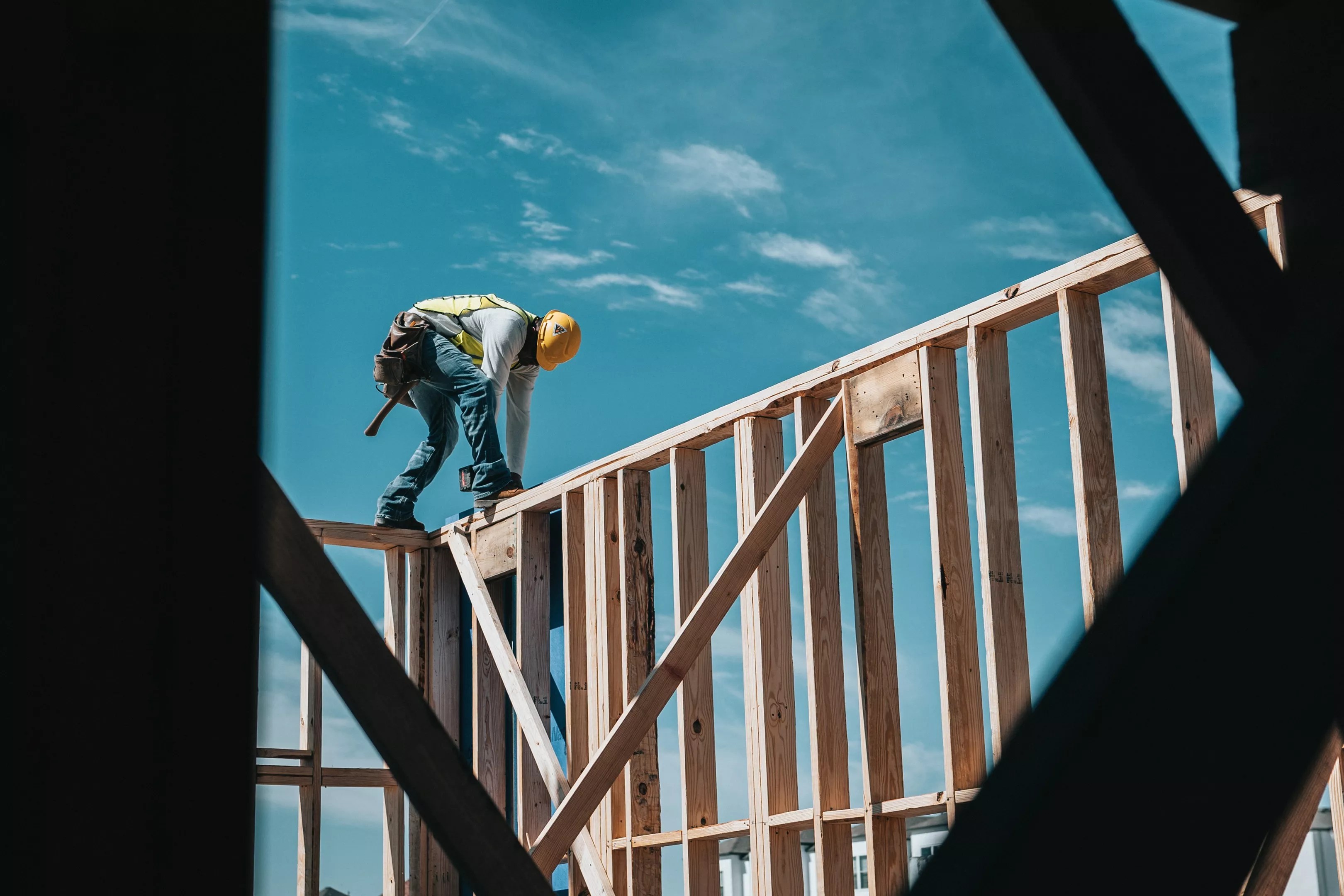
Photo by Josh Olalde on Unsplash

Audio By Carbonatix
Republican lawmakers are pushing legislation that critics say is aimed at wresting local control from Texas’ progressive urban pockets. And one such proposal could seriously screw over Dallas laborers tasked with toiling outside in the summer heat.
The Texas branch of Public Citizen, a nonprofit advocacy organization, warned about the measure in an April 30 tweet.
“In 2022, Austin & Dallas had over 100 combined days of 100+ temps,” the group tweeted. “Both have ordinances requiring 10-minute water breaks for construction workers every four hours which would be nullified by a pending #txlege bill. There are zero 100-degree days forecast for inside the Capitol.”
In 2022, Austin & Dallas had over 100 combined days of 100+ temps. Both have ordinances requiring 10-minute water breaks for construction workers every four hours which would be nullified by a pending #txlege bill.
There are zero 100-degree days forecast for inside the Capitol.
— Public Citizen Texas (@PublicCitizenTX) April 30, 2023
House Bill 2127 by Lubbock state Rep. Dustin Burrows would effectively hamstring cities and counties from enacting and enforcing rules that go beyond Texas law in a wide range of areas, including labor, natural resources, finance and agriculture. It’s supported by business lobbyists and, if passed, Republican Gov. Greg Abbott, who’s expected to sign the measure.
Burrows and other proponents say the bill would help level out a varied assortment of business-related regulations across Texas.
“We want those small-business owners creating new jobs and providing for their families, not trying to navigate a Byzantine array of local regulations that twist and turn every time” they cross city lines, Burrows said, according to The Texas Tribune.
HB 2127 has already passed the House and appears poised to do the same in the upper chamber. It was placed on the intent calendar last week and was awaiting a vote as of early Friday afternoon.
Secretary-treasurer Louis Luckhardt with the Dallas AFL-CIO said that removing required water breaks could jeopardize workers’ safety.
“We’re just getting into the summer heat season, when people really do need those kind of opportunities to survive,” he said. “What they’re doing is stepping back from what we fought hard to get in the safety standards. … I mean, this is a horrible grab for power from the state level.”
The Lone Star state may be the deadliest in the country for laborers, especially for those in construction, the Texas Observer reported last week. Heat contributes to Texas workers’ on-the-job injuries, illnesses and death, with temperatures continuing to steadily climb.
One 2021 report by Texas’ climatologist found that the state witnessed a 2.2 degree-increase in minimum and maximum daily temperatures over the span of 125 years, according to The Texas Tribune. Concrete- and asphalt-dense urban areas often attract hotter temps, and heat-induced smog also exacerbates health issues like asthma.
The Dallas Observer reported in July that heat-related hospitalizations had spiked, with one expert noting that outdoor workers are particularly at risk.
“The floodgates will be open if this bill passes, unless it’s found unconstitutional.” – Rita Beving, Public Citizen
Luckhardt also worries that the “undemocratic” bill could lead to “less qualified workers” in the city and county.
“Dallas has a lot of higher standards for safety and of employees and contractors, and with this legislation, they will go back to the lower standards that the state requires,” he said. “So from all of us, whether it be workers or even consumers in the community, we’re going to be less protected.”
‘Wild West of Lawsuits’
Public Citizen, the advocacy group, blasted HB 2127 in a March letter urging House lawmakers to vote it down. On top of being “overly broad,” the group wrote that the bill “reverses a century of precedent allowing municipalities and counties to make and enforce local ordinances supported by their voters” – like Dallas’ water-break rule.
Public Citizen’s Rita Beving told the Observer early last week that the probability that Abbott would sign HB 2127 is high. She said the bill affects nine codes and would be “devastating” to home rule cities. (Home rule authority in Texas means that certain cities can pass regulations and ordinances so long as they don’t run afoul of state law.)
“Home rule cities were created out of the fact that the Legislature didn’t want to regulate every single little part of a city’s functions, and now we are going backwards,” she said. “We are erasing 111 years of law and opening up our cities and counties to the Wild West of lawsuits.
“The floodgates will be open if this bill passes,” she continued, “unless it’s found unconstitutional.”
HB 2127 would also affect areas like anti-puppy mill ordinances, such as the one in Dallas, Beving said. Meanwhile, officials in Sugar Land and Georgetown are sounding the alarm that the bill would hamper their police hiring policies. (The Dallas City Attorney’s Office didn’t respond to an email asking whether the bill would do the same for law enforcement hiring in Dallas.)
Other current and prospective Dallas and Dallas County ordinances would also be hit, including those related to affordable housing, concrete batch plants, payday lenders, sex shop and strip club regulations and more, Beving said. She refers to the measure as “deregulation from the bottom up.”
Dallas’ industries, and the needs of its constituents, aren’t the same as those in Austin, Beving said. Ditto when it comes to Houston and Corpus Christi. The way she sees it, each city should be able to make decisions based on what’s best for its own residents.
Another issue is the fact that the state Legislature meets just once every two years.
“What if there was an emergency within those cities that needed immediate resolution for the health and benefit of its citizens?” Beving said. “They’d have to ask the governor for a special session, or have to wait. So, yeah, it’s pretty crazy.”